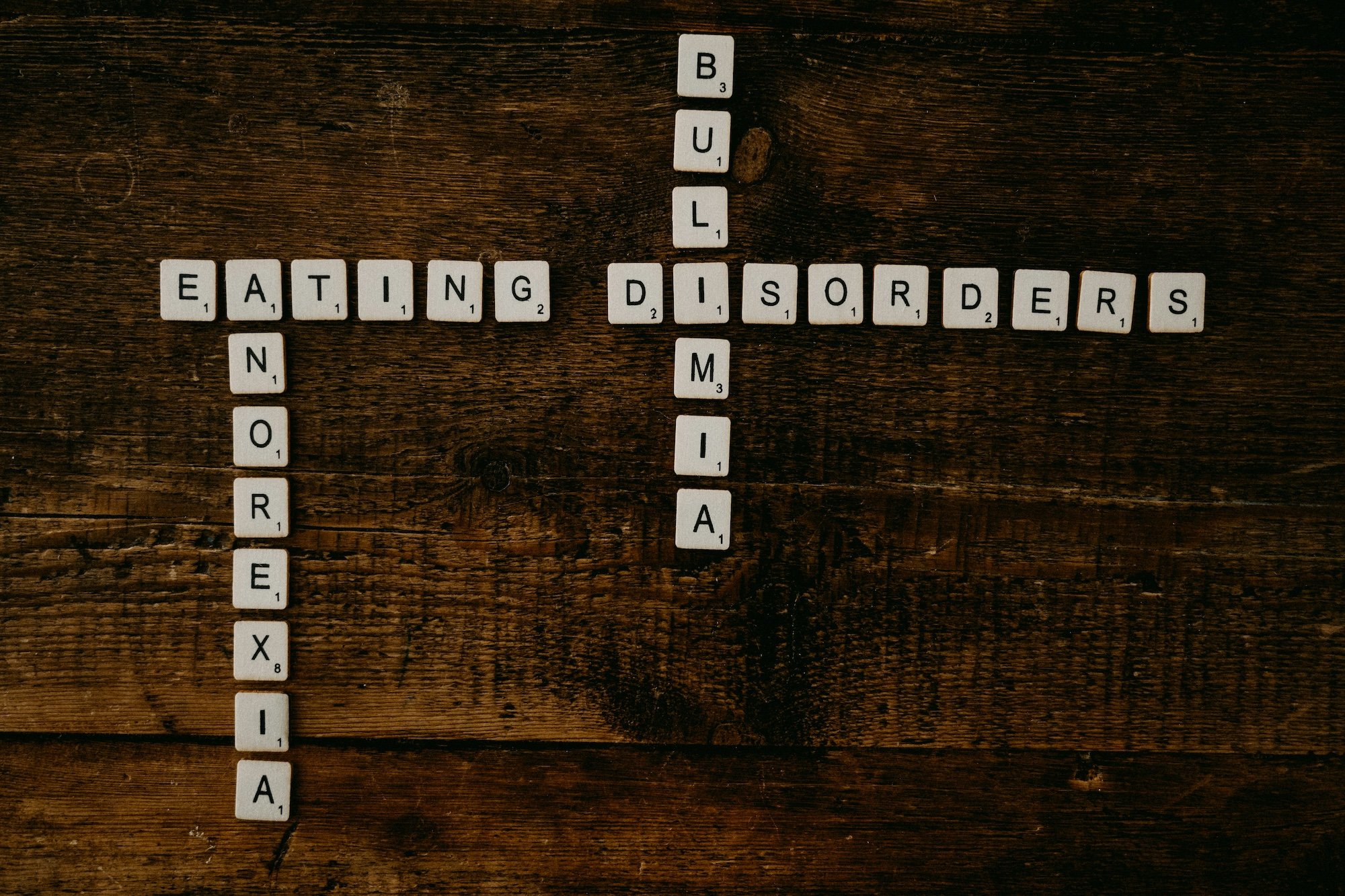4 Ways to Help a Loved One with an Eating Disorder
Photo by Annie Spratt on Unsplash
Do you suspect that one of your friends or family members is struggling with an eating disorder, but don’t know how to help them? We understand that it is a heart-wrenching experience wanting to know how to help your family member with an eating disorder. It is very difficult to watch someone you care about go through something so difficult, and it is even more frightening when you don't know how to help them. Here are 4 suggestions that might help you approach the situation:
Recognize the Signs of Eating Disorders
Recognizing the signs of an eating disorder is the first step. Here are some of the things you may notice if your loved one is struggling.
Anorexia Nervosa
Dramatic weight loss
Wearing baggy, bulky clothes to hide weight loss
Preoccupation with food, dieting, counting calories, etc.
Refusing to eat, especially certain foods, such as carbs or fats
Avoiding mealtimes or eating in front of others
Preparing elaborate meals for others, but refusing to eat them
Exercising excessively
Poor self-image/Making comments about being “fat”
Stopping menstruating
Complaining about constipation or stomach pain
Denying that extreme thinness is a problem
Bulimia Nervosa
Evidence of binge eating, including the disappearance of large amounts of food in a short time, or finding lots of empty food wrappers or containers
Evidence of purging, including trips to the bathroom after meals, sounds or smells of vomiting, or packages of laxatives or diuretics
Skipping meals, avoiding eating in front of others, or eating very small portions
Exercising excessively
Wearing baggy clothes
Complaining about being “fat”
Using gum, mouthwash, or mints excessively
Constantly dieting
Scarred knuckles from repeatedly inducing vomiting
Binge Eating Disorder
Evidence of binge eating, including the disappearance of large amounts of food in a short time, or finding lots of empty food wrappers or containers
Hoarding food, or hiding large quantities of food in strange places
Wearing baggy clothes
Skipping meals or avoiding eating in front of others
Constantly dieting, but rarely losing weight
For more info on the signs of eating disorders and for more info on how to help your friend or family member with an eating disorder, read this post on WebMD.
Approach with Love
Next, it is important to understand that if your loved one or friend is dealing with an eating disorder, they are likely to minimize their situation and/or be very defensive. Begging, pleading, beating around the bush, or becoming angry with them will only heighten these responses. So, whenever you approach your friend about your concerns an eating disorder, you will be most effective if you take a very direct, yet empathetic approach, showing your willingness to listen.
For example, you might say things like, "I really love you, and I'm very worried about you. How can I help you get the help you need? Have you spoken with your doctor about what is going on? Do you have anyone, like a therapist, that you can talk to?" Having to admit that they have a problem will make them feel very vulnerable, afraid, and shameful, so they need to feel like the people around them are supportive, loving, non-judgmental, non-accusatory, and "safe" to turn to when they are ready.
Reach Out for Help
If your loved one becomes willing to speak to someone, either you or they can contact a doctor or mental health professional to do an assessment for them. One of these professionals can sit down with your friend and talk to them about what is going on, and decide from there what might be the best course of action for them. Should your loved one already have a doctor or therapist, ask him/her if he/she will commit to letting their doctor or therapist know that there are many people worried about them, that people are noticing their health declining, and that they’d like to talk more about the eating disorder.
Get Bolder
If you try all of this, and you don't feel like you're getting anywhere, creating a type of intervention might be successful. If it gets to that point, contact a mental health professional to walk you through the process, and find out what will be most effective for your friend.
We hope these steps have given you some direction, and helped you feel better about what to do for your loved one. We wish you and your dear loved one all the best in getting them on the road to healing. They are lucky to have someone like you in their life who cares about them enough to reach out for help and find out information on their behalf.
The therapists at Wasatch Family Therapy are ready to compassionately help your friend or family overcome their eating disorder. Schedule your initial appointment by clicking here, calling 801.944.4555, or texting 801.944.4555.

